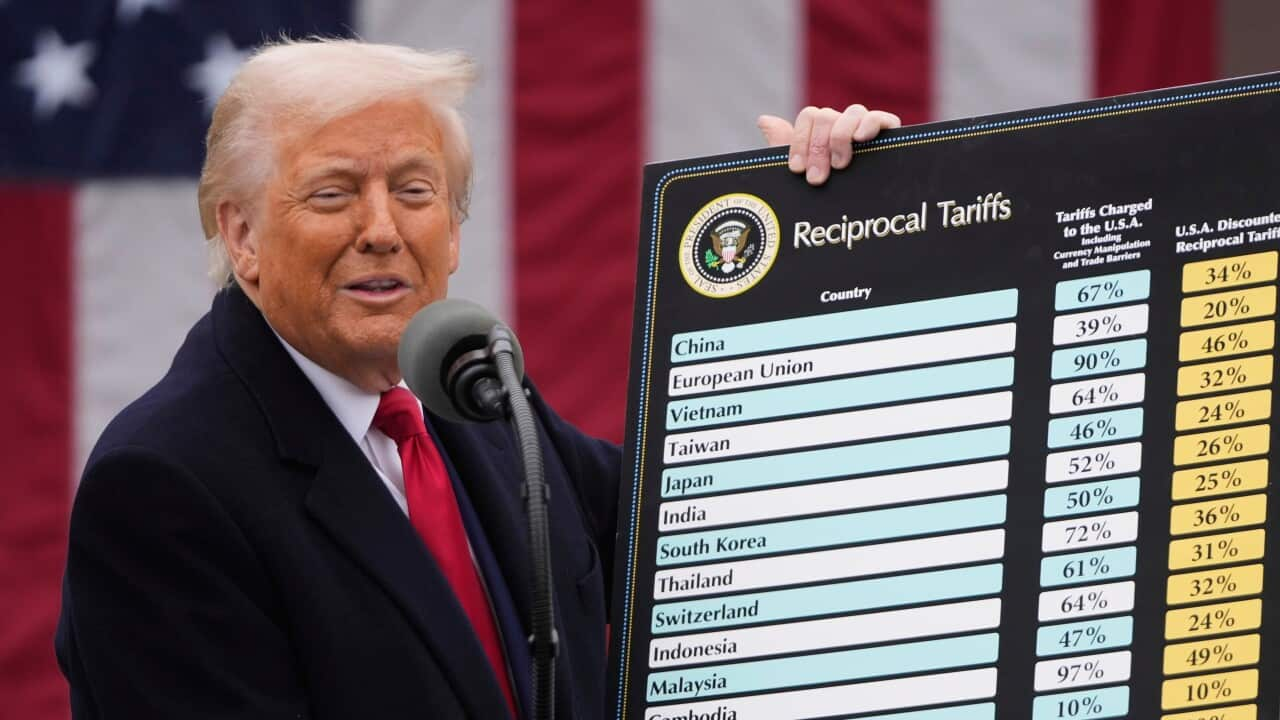US Supreme Court judges raised doubts on Wednesday over the legality of President Donald Trump's sweeping tariffs in a case with implications for the global economy that marks a major test of Trump's powers.
Both conservative and liberal judges sharply questioned the lawyer representing Trump's administration about whether the president had intruded on the power of Congress in imposing tariffs under a 1977 law meant for use during national emergencies.
But some of the conservative judges also signalled that they were wrestling with their recognition of the inherent power that presidents have in dealing with foreign countries, suggesting the court could be sharply divided in the outcome of the case.
The court has a 6-3 conservative majority.
Who is being affected by the tariffs?
The challenge involves three lawsuits brought by businesses affected by the tariffs and 12 US states, most of them Democratic-led.
During arguments lasting more than 2.5 hours, the judges asked whether Trump's application of the 1977 law to impose tariffs of unlimited duration was a major action by the executive branch that would require clear congressional authorisation.
The tariffs — taxes on imported goods — could add up to trillions of dollars for the United States over the next decade.
Trump has heaped pressure on the Supreme Court to preserve tariffs that he has leveraged as a key economic and foreign policy tool.
What is the Trump administration arguing?
Trump solicitor general John Sauer kicked off the arguments by defending the legal rationale employed by the president, but immediately faced questions raising scepticism over the administration's arguments about the language and purpose of the statute at issue.
Trump invoked the International Emergency Economic Powers Act, or IEEPA, to impose the tariffs on nearly every US trading partner.

IEEPA gives the president power to deal with "an unusual and extraordinary threat" amid a national emergency.
It had historically been used for imposing sanctions on enemies or freezing their assets, not to impose tariffs.
Sauer said Trump determined that US trade deficits have brought the nation to the brink of an economic and national security catastrophe.
But what does the law say?
The US constitution grants Congress, not the president, the authority to issue taxes and tariffs.
The imposition of taxes on Americans "has always been the core power of Congress," conservative chief justice John Roberts told Sauer, adding that these tariffs seem to be raising revenue, which the constitution contemplates as a role for Congress.
Conservative justice Amy Coney Barrett questioned Sauer about his argument that IEEPA's language granting presidents emergency power to "regulate importation" encompasses tariffs.
"Can you point to any other place in the code or any other time in history where that phrase together 'regulate importation' has been used to confer tariff imposing authority?" Barrett asked.
Trump is the first president to use IEEPA to impose tariffs, one of the many ways he has aggressively pushed the boundaries of executive authority since he returned to office in areas as varied as his crackdown on immigration, the firing of federal agency officials and domestic military deployments.
Does the court have power over Trump?
US treasury secretary Scott Bessent said in the lead-up to the arguments that if the Supreme Court rules against Trump's use of IEEPA, his tariffs are expected to remain in place because the administration would switch to other legal authorities to underpin them.
In fact, conservative justice Samuel Alito asked about a different statute that has gotten less attention, known as Section 338 of the Tariff Act of 1930, could provide an alternate basis for Trump's tariffs.
Liberal justice Elena Kagan pressed Sauer about his claim that Trump's tariffs are supported by the president's inherent powers under the constitution.
Kagan said the power to impose taxes and regulate foreign commerce are usually thought of as "quintessential" powers belonging to Congress, not the president.
Conservative justice Brett Kavanaugh signalled potential sympathy for Trump, noting that former president Richard Nixon imposed a worldwide tariff under IEEPA's predecessor statute in the 1970s that contained language similar to "regulate importation".
For the latest from SBS News, download our app and subscribe to our newsletter.

